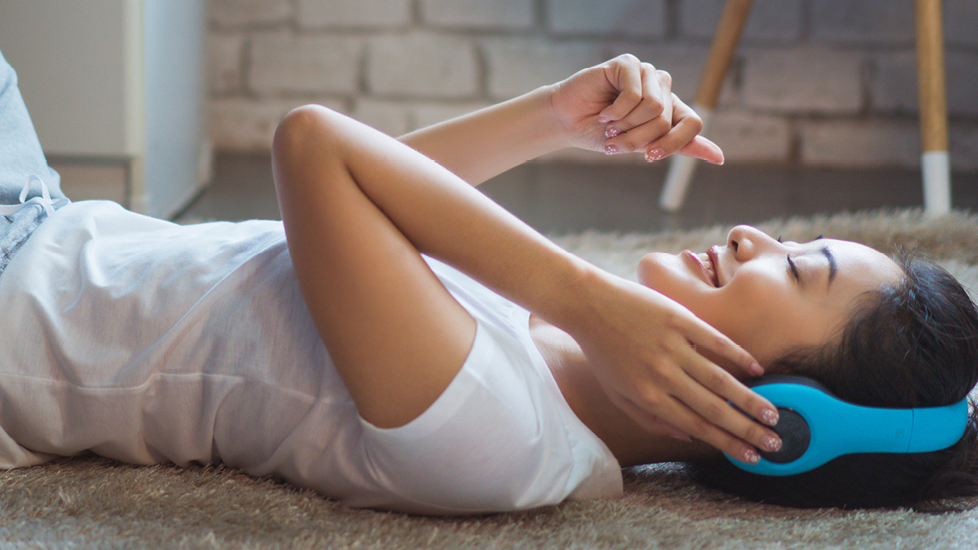Over the years, research has shown that taking care of our health and wellness can help us to be more effective at the things that we set out to do, including our work productivity1. This means that many of us have begun to pursue self-care and self-improvement in an obsessive manner that causes more stress than it is meant to alleviate. Much of this behaviour is driven by preconceived notions of self-care that we see around us. Social media, for instance, can unknowingly become a trigger for greater guilt and self-criticism by trapping us in a vicious cycle of comparative thinking. After all, it is all too easy to think that we are doing too much or too little for ourselves when we are looking to other people for their definition of self-care. The irony is that the most important factor of self-care lies in its name - the idea of ‘self’. It is a deeply personal endeavour that should feel empowering rather than restrictive, which means that for it to truly work, we will first have to shift our mindset and approach it from an angle that is unique to us.
1. Rethink what self-care means for you
With the abundance of self-care advice available, it has led to many of us forming our own assumptions as to what wellness should look like. Public figures, for instance, can provide self-care advice or portray lifestyles and routines that are seemingly backed by a huge social following. However, with how much social media can influence our lives, this constant exposure is also likely to put excess pressure on us to adopt those practices, which may not even suit us in the first place.
Furthermore, we are increasingly turning to technology and data to keep up with our self-care routines, such as tracking daily step counts and sleep quality using various fitness devices. While this access to data and tracking has made it easy for us to determine if we have achieved our self-care goals, it can also lead to greater levels of stress, guilt and even higher levels of obsession when we fail to hit our goals consistently. In fact, a study found that 79% of women using fitness devices were under pressure to hit their daily targets, 59% of them felt that they were controlled by it, and 30% considered their device an enemy as it made them feel guilty2. In this sense, technology that was supposed to help us better care for ourselves can instead have the opposite effect of inducing more care-related dread and stress.
At the end of the day, self-care is a personal commitment and the most important part of it is the connection to ourselves. Everyone has different ways of winding down, relaxing and recharging. As such, only we can effectively determine what our bodies, minds and spirits need to thrive. If you find that you and your employees are better at practising self-care intuitively, then feel free to use technological aids more sparingly. The opposite can also be true, depending on who you ask. When it comes down to it, the best self-care solutions are often the ones that we find for ourselves rather than those that are influenced by the judgements and actions of others. The easiest way to get around to doing so is simply by recognising what makes us feel good and taking subsequent steps to build on it.
2. Do away with the trade-off, all-or-nothing mentality
Contrary to popular belief, making time for self-care does not require a complete lifestyle overhaul on our part. These perceptions stem from previously discussed ideas of established ‘norms’ in society and add to the misconception that self-care has to be a tedious and time-consuming feat. It is not uncommon for us to fall prey to the excuse that we cannot find time for self-care despite having a clear desire and understanding of its benefits.
Having a trade-off mentality further exacerbates this, as it forces us to approach self-care as a sort of necessary ‘sacrifice’. It assumes that we will have to give up huge chunks of our precious leisure time in order to make time for self-care obligations, even though that may not be true. For those of us who are still figuring out a routine for ourselves, it is often more realistic to start by exploring and implementing small, doable changes that fit well in the larger context of our lives. We may not always have time for hour-long mindfulness or exercise sessions, but instead of feeling frustrated or dismissing it entirely, it can be more rewarding to squeeze in shorter, 5-minute sessions that add to your sense of accomplishment. Every little victory counts, and it is these small efforts that are likely to yield more positive and long-lasting impacts.
3. Look for ways to weave self-care into existing routines
There is an inherent assumption that self-care is something that we have to specifically make time for and do separately from the other aspects of our lives. On the contrary, the most sustainable self-care solutions are those that have been woven into these different aspects of our lives. By understanding this shift in mindset, it also helps us to counter the all-or-nothing mentality that we discussed previously, as it debunks the misconception that we have to sacrifice our precious time in order to partake in self-care.
This especially applies to the workplace. We are likely to believe that work and self-care should be kept separate. The workplace is often perceived to be a space that emphasises productivity, progress and responsibility, with little to no room for self-care. However, given that we spend such a significant amount of time in the workplace, it can be more beneficial for us to weave in short periods of care to catch our breaths and steady ourselves before diving back into work. Here are some tips to do so:
- Hold walking meetings
- Find a quiet space for a quick meditation session
- Disconnect from work during your lunch break by eating out
- Use your lunch break for other activities that recharge you, such as hitting the gym or listening to music
While seemingly insignificant, these short breaks can do wonders by giving us the opportunity to freshen our minds, stay active as well as relieve some stress.
Over to you
Acknowledging our excuses and resistance to self-care is the first step to overcoming it. Because of its personal nature, it will usually take some time before you can build and settle into your own self-care routine. The best way to start out is to experiment with your curiosity and self-compassion. And while you would want to be free of restrictive outside influences, feel free to gather inspiration as well as share your progress with the people around you. Not only will this help expose you to previously unknown forms of care, but it can also set the tone for you and your co-workers to grow together in ways that are beneficial for your health and wellbeing.
Sources:
1. Ford, M., Cerasoli, C., Higgins, J., & Decesare, A. (2011). Relationships between psychological, physical, and behavioural health and work performance: A review and meta-analysis.
2. Duus, R., & Cooray, M. (2015). Can wearable fitness trackers take control of your life?


 1dt - 1800px x 580px.jpg)